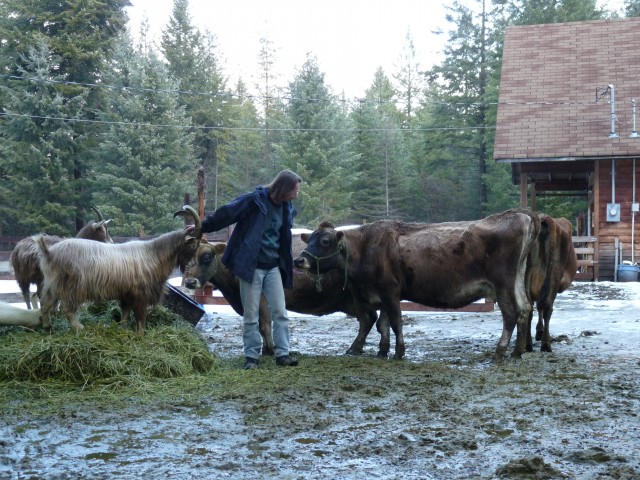One step closer to local food security
How close are meat producers to having a working mobile abattoir in the Boundary region? In January 2011 Boundary meat producers met with government representatives to discuss the future of the meat industry in the Boundary. At this meeting livestock producers said their number one priority was a licensed mobile abattoir, or mobile processing unit (MPU), with processing and marketing facilities a close second. Further discussion centered on increasing public awareness, questioning where one’s food comes from and the ethics of how food is raised and grown. Recently, the Grand Forks and Boundary Regional Agricultural Society (GFBRAS) formed a committee to move the MPU forward. The committee has been communicating with various government agencies and the MPU is expected to be complete in 2012. Over 50 percent of the funding is secured and a decision by the final funder is expected very early spring 2012. However, the future of meat production in the Boundary goes beyond the mobile abattoir and today’s farmers and meat producers. According to Doug Zorn, a committee member, “We need to be forward looking. Young people are the future and we need to encourage young people to seriously consider agriculture as an occupation. There are a lot of opportunities for meat producers to move the rural regions in BC forward, but farming has to be profitable.” Zorn suggested that by educating young people by encouraging farm-college accredited courses or by pairing recognized agricultural learning institutions with outlying areas current farmers gain new skills and future farmers/ranchers develop the tools to be successful. The meat producers require chicken coops, barns, areas to raise meat birds and all of this stimulates the local economy and creates employment. Meat producers in turn need processing facilities, marketing, and distribution centers. This creates more building and employment and creates opportunities for farmers, Zorn added. More specifically, operating a mobile abattoir in the Boundary region creates a lot of opportunities for the current farmers and the next generation of farmers. The abattoir will require employees to process poultry and red meat. Initially these positions will be part time, but move toward full time as more meat producers come on board. In 2006 the B.C. Provincial government deployed a “buy local” campaign. This short lived promotion of local food has done more for local producers of farm fresh, organic, and local food than climate change and the inevitable “peak oil” concerns. How can we continue to transport our food thousands of kilometers and eat some foods that are unhealthily? The issues these conversations raise show that the future of meat and food production in the Boundary region is of paramount importance.
If you think you are interested in this type of work contact Larry Dees 250-442-0622, a member of the mobile processing unit and opportunities committee of the Grand Forks and Boundary Regional Agricultural Society.






















